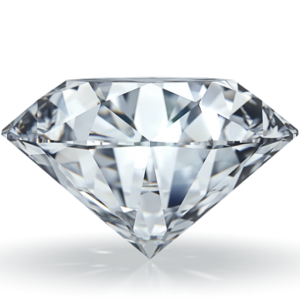 If you have an old or unique piece of fine jewelry, you may want to get an appraisal to learn about the history of that type of jewelry and its value. This is often described as an Estate Appraisal, which assigns value to a piece of jewelry that is more in line with current pricing conditions and liquidity potential. Estate jewelry is often appraised to facilitate a quick sale, or to help divide property for an Estate. However, Estate Jewelry can also be very complex in its intrinsic value. Often times, an Estate piece of jewelry can be valued as an antique, or according to who designed and made the piece. A Faberge Egg, or a Vintage design from Cartier may have value beyond its material content.
If you have an old or unique piece of fine jewelry, you may want to get an appraisal to learn about the history of that type of jewelry and its value. This is often described as an Estate Appraisal, which assigns value to a piece of jewelry that is more in line with current pricing conditions and liquidity potential. Estate jewelry is often appraised to facilitate a quick sale, or to help divide property for an Estate. However, Estate Jewelry can also be very complex in its intrinsic value. Often times, an Estate piece of jewelry can be valued as an antique, or according to who designed and made the piece. A Faberge Egg, or a Vintage design from Cartier may have value beyond its material content.
Some additional insight regarding Estate Appraisals: An estate appraisal is based on fair market value, that is, the price an item can bring from a willing buyer and seller without a forced sale and where time is not of the essence. The value you arrive at should be fair for all concerned. Since probate laws vary from one geographic area to another, make sure your values are within the legal limits. Contact local governmental agencies to determine the requirements for your area. Yo u should state on the appraisal whether the document does or does not constitute an offer to buy, and be specific about what pieces you’re interested in. Special consideration should be given to certain items. No value should be assigned to non-jeweled or pin lever watches or badly abraded or damaged stones which are too small to feasibly repolish or recut. Little value should be assigned to worn out mountings (base on scrap metal value.) Extra value should be assigned to numismatically important gold coins, rare antiques and collectors items.
The following disclaimers or similar ones should be considered for an estate appraisal:
1. The prices reflected herein are estimates of the current fair market value of the items set forth above in their present condition and do not represent the replacement value of similar merchandise.
2. The term “fair market value” as used herein is defined as the approximate amount that one may anticipate receiving in a transaction between a willing buyer and a willing seller, time not being of the essence, for this/these specific item(s) at this time and place.